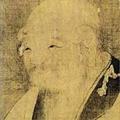LAO-TSEU : Tao Te King, Livre 1: chapitre 2
LAO-TSEU : Tao Te King, Buch 1: Kapitel 2
LAO-TSEU: Tao Te King, Book 1: Chapter 2
LAO-TSEU: Tao Te King, Libro 1: capítulo 2
LAO-TSEU: تائو ته چینگ، کتاب 1: فصل 2
LAO-TSEU: Tao Te King, Libro 1: capitolo 2
LAO-TSEU:『タオ・テ・キング』第1巻:第2章
LAO-TSEU: Tao Te King, Księga 1: rozdział 2
LAO-TSEU: Tao Te King, Livro 1: capítulo 2
ЛАО-ЦЗЭУ: Дао дэ Цзин, книга 1: глава 2
LAO-TSEU: Tao Te King, Kitap 1: Bölüm 2
老子:《道德經》,第一冊:第二章
2.
2.
2.
Dans le monde, lorsque tous les hommes ont su apprécier la beauté (morale), alors la laideur (du vice) a paru.
||world|when|||men||have known|appreciate||beauty|morality|then||ugliness||vice||appeared
||||||||saber|||||||a feiura||vício||apareceu
|||||||||欣賞|||道德|||||惡行||出現
|||||||||||||||Hässlichkeit||||
|||ne zaman||||||takdir etmek||güzellik||||||||
|||||||||arvostaa||kauneus||||rumuus||pahe||ilmestyi
|||||||||||||||醜さ||悪徳||
||||||||||||moralidad|||Fealdad del vicio||vicio||apareció
In der Welt, als alle Menschen die (moralische) Schönheit zu schätzen wussten, erschien dann die Hässlichkeit (des Lasters).
In the world, when all men have been able to appreciate (moral) beauty, then ugliness (vice) has appeared.
В мире, когда все люди умели ценить (нравственную) красоту, появилось уродство (порока).
在世界上,當所有人都能欣賞美(道德)時,醜陋(惡行)就出現了。
Lorsque tous les hommes ont su apprécier le bien, alors le mal a paru.
||||||欣賞|||||||
|||||||||||||appeared
|||||||||||||ilmestyi
Als alle Menschen das Gute zu schätzen wussten, da erschien das Böse.
When all men have been able to appreciate the good, then the evil has appeared.
Когда все люди научились ценить добро, появилось зло.
當所有人都能欣賞善時,惡就出現了。
C’est pourquoi l’être et le non-être naissent l’un de l’autre.
|||||||syntyvät|||
|||||||arise|||
||存在|||||生まれる|||
Deshalb entstehen das Sein und das Nichtsein aus einander.
That is why being and non-being are born from each other.
Вот почему бытие и небытие рождаются друг из друга.
İşte bu yüzden varlık ve yokluk birbirlerinden doğar.
這就是為什麼有與無彼此產生。
Le difficile et le facile se produisent mutuellement.
||||||相互產生|相互地
|difficult|and|the|easy||occur|mutually
The difficult and the easy happen mutually.
سخت و آسان متقابل اتفاق می افتد.
Трудное и легкое - взаимоисключающие понятия.
困難與容易互相產生。
Le long et le court se donnent mutuellement leur forme.
|||||||互相||
|||the|short||give||their|
The long and the short give each other their shape.
Длинное и короткое придают друг другу форму.
長與短互相賦予形狀。
Le haut et le bas montrent mutuellement leur inégalité.
|high||||show|||inequality
|alto|||||||injustiça
||||||||不平等
|||||näyttävät|||
||||||||不平等
||||||||Desigualdad mutua
The up and down mutually show their inequality.
Верх и низ показывают друг другу свое неравенство.
高與低互相顯示不平等。
Les tons et la voix s’accordent mutuellement.
|tones|||voice|harmonize|
|tons|||||
|音调|||||
|äänet|||||
|||||合う|
|Tonos||||se acuerdan|
The tones and the voice agree with each other.
Тональность и голос гармонично сочетаются друг с другом.
聲調和聲音互相協調。
L’antériorité et la postériorité sont la conséquence l’une de l’autre.
The anteriority|||posteriority|||consequence|||
先前性||||||結果|||
Die Vorläufigkeit|||Nachfolgendkeit||||||
ennakkoisuus|||||||||
先行性|||後続性||||||
La anterioridad|||posterioridad||||||
Anteriority and posteriority are the consequence of each other.
Передний и задний планы являются следствием друг друга.
先前性和後繼性是相互的結果。
De là vient que le saint homme fait son occupation du non-agir.
|||||pyhä|mies||||||toimiminen
Of||comes||the|holy||||occupation|||act
||vem|||santo|||||||
|||||||||職業|||
Daher kommt es, dass der heilige Mann seine Beschäftigung aus dem Nicht-Handeln macht.
Hence the holy man makes his occupation of non-action.
Поэтому святой человек делает своим занятием не-действие.
由此可見,聖人以無為為其職業。
Il fait consister ses instructions dans le silence.
||在於|||||沉默
||bestehen|||||
It||consist||instructions|||silence
||する||指示|||
He makes his instructions consist in silence.
Его указания сводятся к молчанию.
他的指示在于沉默。
Alors tous les êtres se mettent en mouvement, et il ne leur refuse rien.
|||||使得|||||||拒絕|
|||beings||move||movement|||||refuse|
||||||||||||No les nie.|
|||||menevät||||||||
Dann setzen sich alle Wesen in Bewegung, und er verweigert ihnen nichts.
Then all beings move, and he refuses them nothing.
Тогда все существа начинают двигаться, и он ни в чем им не отказывает.
于是所有的生物都开始活动,他没有拒绝他们任何要求。
Il les produit et ne se les approprie pas.
||produces|||||appropriates|
|||||||apropria|
|||||||佔有|
|||||||aneignet|
|||||||占有する|
|||||||apropia|
Er produziert sie und eignet sie sich nicht an.
He produces them and does not appropriate them.
Он производит их, но не делает своими.
他创造他们,却不占有他们。
Il les perfectionne et ne compte pas sur eux.
||完善||||||
||perfects||||||
||perfecciona|||conta|||
||perfecciona||||||
||完璧にする||||||
Er perfektioniert sie und verlässt sich nicht auf sie.
He perfects them and does not rely on them.
آنها را به کمال می رساند و بر آنها تکیه نمی کند.
Он совершенствует их и не полагается на них.
他完善它們,但不依賴於它們。
Ses mérites étant accomplis, il ne s’y attache pas.
|merits|being|accomplished|||it|attaches|
||estando||||||
||因為||||||
|||||||hängt|
|ansioista|||||||
|功績||達成された|||それに|つく|
|méritos||cumplidos||||se apega|
Da seine Verdienste erfüllt sind, hängt er nicht an ihnen.
His merits being accomplished, he does not relate to it.
Теперь, когда его заслуги достигнуты, он не привязан к ним.
他的功績已經完成,他不會對此執著。
Il ne s’attache pas à ses mérites ; c’est pourquoi ils ne le quittent point.
||attaches||||||||||leave|point
||se apega||||||||||deixam|ponto
||不依賴||||||||||離開|
||||||Verdienste|||||||
||||||||||||jätä|eivät
||自分を重視しない||||功績|||||||
||No se aferra||||||||||lo abandonan|
Er hängt nicht an seinen Verdiensten; darum verlassen sie ihn nicht.
He does not attach himself to his merits; therefore they do not leave him.
Он не привязан к своим достоинствам, поэтому они никогда не покидают его.
他不執著於自己的功績;這就是為什麼它們不會離開他。

